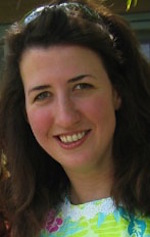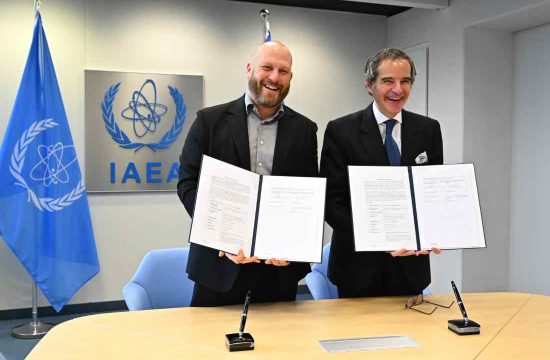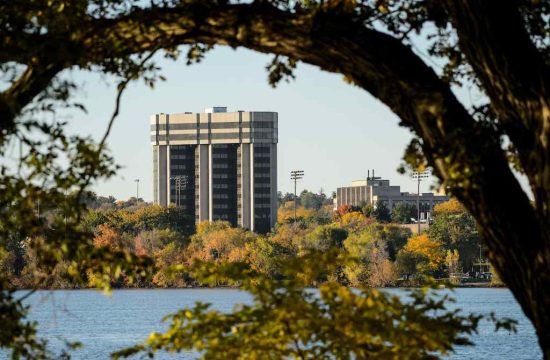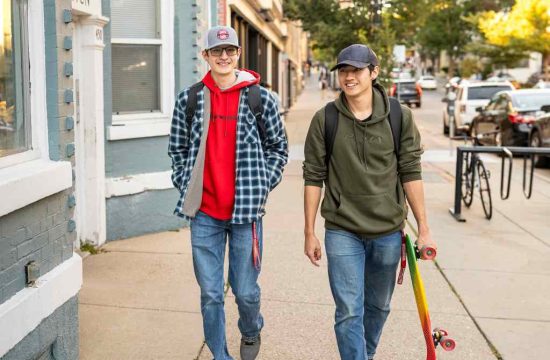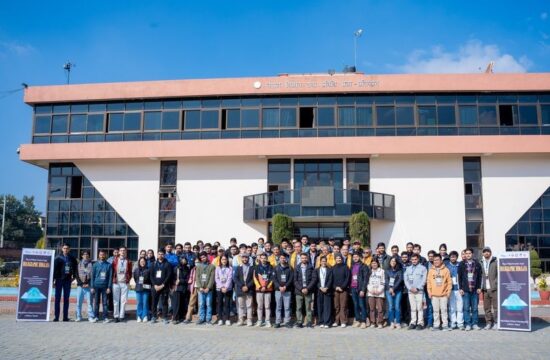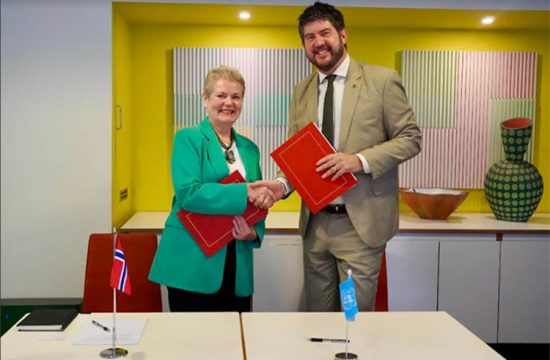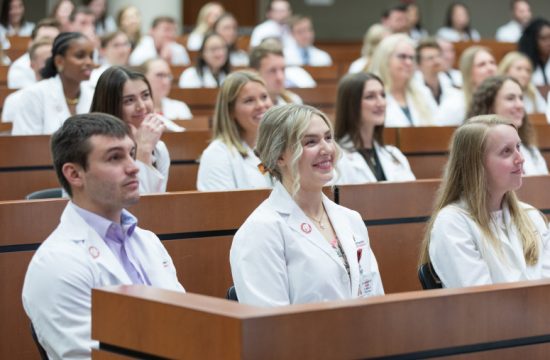MADISON – The American Association for the Advancement of Science (AAAS) has named Tracey Holloway, a professor of environmental studies at the University of Wisconsin-Madison, an inaugural Public Engagement Fellow of the Alan I. Leshner Leadership Institute for Public Engagement with Science for 2016-17.
The new Leshner Leadership Institute and fellowship program convenes mid-career scientists who combine demonstrated leadership and excellence in their research careers with interest in promoting meaningful dialogue between science and society. The intent is to help build their capacity for public engagement leadership.
Holloway is one of three fellows announced today. Another 12 will be named in December for a total of 15 fellows. All will be scientists focused on climate change, while future cohorts will represent other fields of scientific inquiry, particularly those at the intersection of science and society and with a record of scholarship related to communication.
At UW-Madison, Holloway leads a research program in the Nelson Institute Center for Sustainability and the Global Environment that employs computer models and satellite data to understand links between regional air quality, energy and climate.
[pullquote]At UW-Madison, Holloway leads a research program in the Nelson Institute Center for Sustainability and the Global Environment that employs computer models and satellite data to understand links between regional air quality, energy and climate.[/pullquote]
She also serves as deputy director of the NASA Air Quality Applied Sciences Team, and is president and co-founder of the Earth Science Women’s Network.
“I was so honored to be invited to participate in this new program,” says Holloway. “To me, science and public engagement go hand-in-hand, and I’ve always felt fortunate to be part of the Nelson Institute, where public engagement is part of our mission. It is exciting to join this AAAS initiative, get training on how to be more effective, and connect with peers in this area.”
Peter Huybers of Harvard University and Karen Lips at the University of Maryland are also among the inaugural fellows of the Leshner Leadership Institute. Nominations for the remaining fellows are open until November 1, 2015.
“Scientific research is about asking and answering questions, and often the hardest part of the process is knowing what questions to ask,” Holloway adds. “Talking with partners in industry and policy, and the public, and knowing what’s on their minds, helps me ask better questions. My goal is to work on real-world problems in air quality and help inform decision making.”
The full cohort of fellows will convene in June 2016 at AAAS headquarters in Washington, D.C., for a week of intensive public engagement and science communication training, networking, and public engagement plan development. After the training, the fellows will return to their institutions to develop and implement public engagement activities, opportunities for training other scientists in their communities, and increased capacity for public engagement leadership. AAAS staff will provide ongoing support and continuing professional development throughout the fellowship year.
Additional details about the Leshner Leadership Institute and its work toward engaging science and society will be shared at an informational webinar on Sept. 9. Dominique Brossard, professor and chair in the UW-Madison Department of Life Sciences Communication, is a featured speaker at the event.


